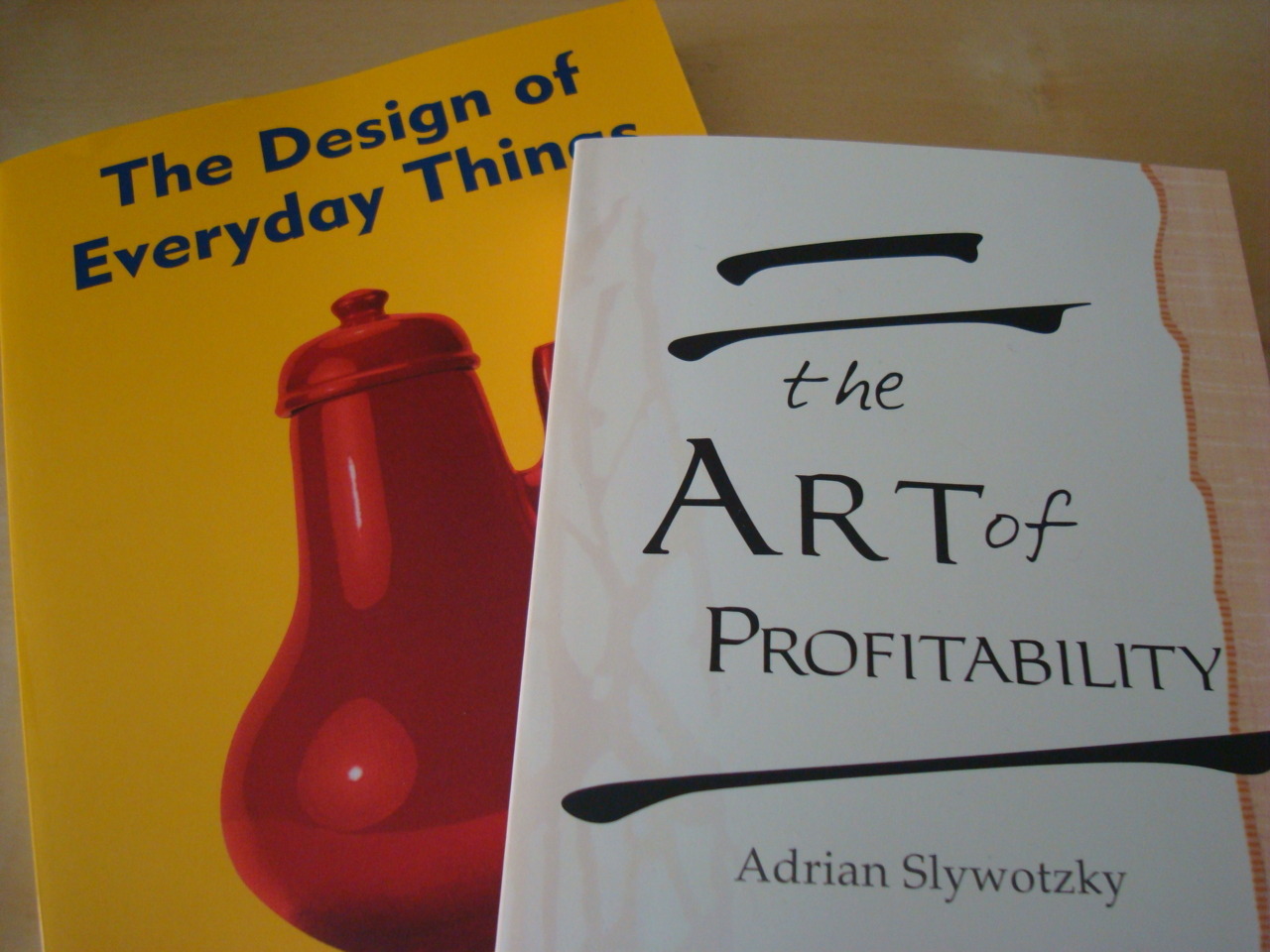
Design of Everyday Things and The Art of Profitability. More food for thought to help me on my startup.
Tags: books
Founder and developer at Bloco.
Technician at Rádio Baixa. Host of Posto.
Member of Coimbr'a Pedal.

Design of Everyday Things and The Art of Profitability. More food for thought to help me on my startup.
Tags: books
Tags: development, presentation, workshop
Two great ways to track service users. I got to implement this.
This post was originally written in January 2009.
Continuing the free ebook spree, I’ve found 3 more on creativity and design.

Tags: books, design, creativity
This post was originally written in September 2008.

The incentives trickle down. If a school’s test scores are poor, their funding is in jeopardy. If a school’s test scores are high, they get more funding. If a school has more funding, the teachers get paid more. If a school has a cut in funding, teachers may lose their jobs and classroom sizes go up. And the incentives for students? Not great, really, other than if you don’t pass by your final year, you don’t graduate. Students who fail the test in earlier grades get extra attention, helping them pass the test by their graduating year.
[…]
I would also change the incentives for schools and teachers. Decreasing funding for a school in crisis doesn’t seem to fit the situation. I know it works in business – a department is slacking off…kill the funds – but a learning environment is different. I am only guessing, but I assume that the schools that lose funding are those in areas that need it the most. These are the schools with kids from poor families whose parents aren’t there (or aren’t able to be there) to sit and help their kids with their homework. These schools need more funding, not less.
Tags: education